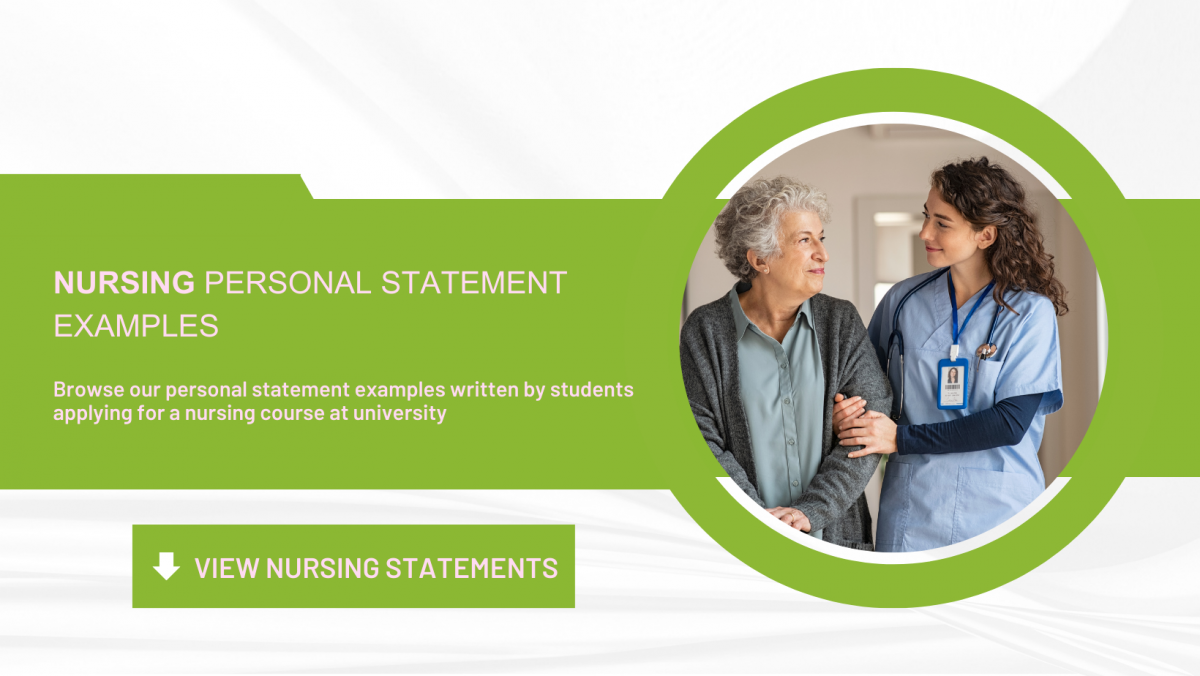

7 Essential Topics To Include In Your Personal Statement
Nurse Practitioner (NP) programs often ask for a personal statement with your application. So, what exactly is a personal statement, and why does it matter so much?
A personal statement is an essay where you talk about yourself – your background, work experiences, why you want to become a nurse practitioner, and your goals for your career.
Here’s why it’s key to your application:
It shows who you are. Beyond grades and test scores, this essay lets you share your unique story. You can show the admissions team your personality, values, and what makes you a great candidate for their NP program.
It proves you can communicate well. Being able to clearly express yourself is crucial for nurse practitioners. Your personal statement lets you show that you can organize your thoughts and explain things well, skills you’ll need for both your studies and your career.
It explains your motivation. This is your chance to talk about why you want to be a nurse practitioner and how the program you’re applying to fits with your career plans. It’s your moment to share your passion for nursing and healthcare.
It highlights your experience. You can use the essay to shine a light on the healthcare work you’ve done, like nursing roles, volunteering, or research. This helps show you’re ready for the challenge of an NP program and a career in advanced nursing.
It sets you apart. When many applicants have similar backgrounds, a well-written personal statement can help you stand out. Sharing your unique experiences and viewpoints can leave a lasting impression on the admissions team.
7 Topics To Include In Your Personal Statement With Examples:

1. Your Motivation for Becoming a Nurse Practitioner
Start with a strong introduction that captures your passion for nursing and your reason for pursuing an advanced practice role. This could be a personal anecdote that illustrates your dedication to healthcare, patient care experiences that motivated you, or an encounter with a Nurse Practitioner who inspired you.
- Example 1: “Growing up, I witnessed firsthand the impact of health disparities in my community, which ignited my passion for nursing. A pivotal moment came when a nurse practitioner in our local clinic went above and beyond to care for my family. Her dedication inspired me to pursue a career where I could make a significant difference in people’s lives, especially in underserved areas.”
- Example 2: “My motivation to become a nurse practitioner was solidified during my work in a pediatric unit. Seeing children’s resilience in the face of illness, and realizing the profound difference that personalized, compassionate care can make in their recovery, drove me to seek a role where I could offer such care on a deeper, more autonomous level.”

2. Educational and Professional Background
Outline your academic achievements, especially those relevant to nursing and healthcare. Include any honors, awards, or scholarships. Also, detail your work experience, particularly in healthcare settings, emphasizing roles that have prepared you for advanced practice nursing. This could include leadership positions, special projects, or initiatives you were part of.
- Example 1: “ Earning my BSN with a focus on pediatrics, I graduated with honors and worked at a children’s hospital for over five years. This role deepened my skills in managing diverse pediatric conditions and honed my ability to communicate with young patients and their families effectively. My passion for child health care drives me to specialize further through a Nurse Practitioner program, aiming to enhance my impact on pediatric well-being.”
- Example 2: “I graduated summa cum laude with my BSN and actively contributed to research on geriatric care management. Working as a nurse in a community health center, I spearheaded a project to improve patient education for managing chronic conditions, which fueled my desire to advance my practice through an NP program.”
- Example 3: “After achieving my BSN, where I specialized in emergency care and graduated at the top of my class, I embarked on a career in a Level I Trauma Center. This fast-paced environment honed my decision-making skills and my ability to quickly adapt to changing situations, traits essential for the dynamic role of a Nurse Practitioner. My leadership capabilities were recognized when I was appointed as the head of the unit’s mentoring program for new nurses, a role in which I thrived by guiding others towards excellence in patient care.”

3. Clinical Skills and Experience
Highlight your clinical experiences and the skills you’ve developed. Be specific about the types of healthcare settings you’ve worked in (e.g., hospitals, clinics, community health), the medical specialities and patient populations you’ve served (e.g. pediatric, oncology, cardiology, surgery), and any specialized skills or certifications you have (e.g., ACLS, PALS).
- Example 1: “In my role as an RN in a cardiac care unit, I developed proficient skills in managing acute cardiac episodes and providing post-operative care. This experience, complemented by my ACLS certification, has prepared me for the acute care challenges I will face as a Nurse Practitioner.”
- Example 2: “My clinical rotation in a rural health clinic exposed me to a wide range of primary care issues, from managing chronic illnesses to delivering preventive care. This experience honed my ability to adapt to diverse healthcare settings and solidified my commitment to primary care as a Nurse Practitioner.”

4. Professionalism and Leadership
Demonstrate your commitment to professionalism and leadership in nursing. This could include involvement in professional organizations, volunteer work, leadership roles you’ve held, and how you’ve contributed to improving patient care or healthcare delivery.
- Example 1: “As a member of the Nursing Professional Development Committee at my hospital, I led initiatives to enhance ongoing education and training for nurses, demonstrating my commitment to professional growth and quality patient care.”
- Example 2: “Volunteering as a nurse in a local shelter, I organized health screening events and educated the community on disease prevention. This leadership experience reinforced the importance of community health and advocacy in nursing practice.”
- Example 3: “As a charge nurse in a busy medical surgical unit, I’ve honed leadership skills that are directly transferable to a Nurse Practitioner role. Managing a team of nurses, I’ve learned the importance of clear communication, teamwork, and quick decision-making to ensure efficient patient care and safety. My experience in delegating tasks, mentoring new staff, and collaborating with interdisciplinary teams has prepared me to take on the advanced responsibilities of a Nurse Practitioner. I believe these skills will enable me to effectively lead patient care initiatives, contribute to team-based healthcare delivery, and ensure positive outcomes for my patients.”

5. Your Understanding of the Nurse Practitioner Role
Show that you have a clear understanding of what Nurse Practitioners do, the challenges they face, and the impact they have on healthcare. Discuss how you see yourself fitting into this role and contributing to the profession.
- Example 1: “I recognize that Nurse Practitioners play a critical role in expanding access to healthcare, especially in primary care shortage areas. My aspiration is to contribute to this effort by combining my clinical skills with a holistic approach to patient care.”
- Example 2: “Understanding the Nurse Practitioner’s role in leading patient-centered care teams, I am eager to leverage my experience in interdisciplinary collaboration to improve healthcare outcomes and patient satisfaction.”
- Example 3: “Shadowing and working alongside Nurse Practitioners in a primary care setting provided me with invaluable insights into the multifaceted role of NPs in healthcare. Observing their holistic approach to patient care, from conducting thorough assessments and developing personalized care plans to educating patients on disease prevention and health maintenance, reinforced my understanding of the critical impact NPs have on improving healthcare outcomes. This experience has deepened my appreciation for the NP’s role in bridging gaps in healthcare accessibility and has motivated me to contribute to this vital field. My firsthand observations of NPs in action have equipped me with a clear vision of the collaborative, patient-centered care I aspire to provide as a Nurse Practitioner.”

6. Personal Qualities and Strengths
Share personal qualities and strengths that make you a good fit for the Nurse Practitioner role. This could include empathy, resilience, excellent communication skills, ability to work well under pressure, and a strong commitment to lifelong learning.
- Example 1: “My colleagues commend my empathy and ability to communicate effectively with patients from diverse backgrounds, strengths I believe are essential for a successful Nurse Practitioner. My resilience, developed through handling challenging patient care situations, has prepared me to face the complexities of advanced practice nursing.”
- Example 2: “Known for my meticulous attention to detail and analytical skills, I am adept at assessing patient needs and developing comprehensive care plans. These strengths, coupled with my commitment to continuous learning, will enable me to excel in the dynamic environment of advanced nursing practice.”

7. Your Goals and Aspirations
Conclude with your professional goals and aspirations. Explain how the NP program will help you achieve these goals, the areas of practice you are particularly interested in (e.g., family health, pediatrics, geriatrics), and how you plan to contribute to the field and to improving patient care.
- Example 1: “Upon completing the Nurse Practitioner program, my goal is to work in a rural health clinic, addressing the gap in primary care access. I aspire to advocate for preventive care measures and manage chronic conditions, improving the overall health of rural communities.”
- Example 2: “After completing the Nurse Practitioner program, I aim to specialize in mental health, addressing the urgent need for accessible psychiatric care. My goal is to integrate holistic and evidence-based approaches to support individuals with mental health challenges, fostering resilience and well-being in my community.”
- Example 3: “My long-term aspiration is to specialize in oncology as a Nurse Practitioner, contributing to both patient care and cancer research. I aim to use my skills and knowledge to improve treatment protocols and support services for patients undergoing cancer treatment, ultimately enhancing their quality of life.”
Each example is crafted to showcase not only the candidate’s qualifications and experiences but also their personal connection to the field, their understanding of the NP role, and their future aspirations. Tailoring your statement to reflect your unique story will make it compelling and memorable.
Remember, your personal statement should be a reflection of who you are. It should be well-organized, concise, and clearly written, free from grammatical and spelling errors. Tailor it to each program you apply to, ensuring it aligns with their values and expectations. Showcasing your unique experiences and aspirations will make your application stand out.
Don’t forget to check out the other helpful articles on this website!
- How to Prepare for NP School While Still in College
- How to Prepare for NP School- Advice From Current Students
- The Top 9 Things Most Nurses Don’t Know When Applying to NP School
- A Detailed Guide to the Nurse Practitioner School Interview
- Can You Go to NP School Right After BSN With No Experience?
- Stethoscope Recommendations for Nurse Practitioners
Nursing Bay
College personal statement examples and writing tips.
A crucial step in your nursing journey is learning how to write a personal statement that resonates with admissions committees and vividly portrays your passion for healthcare. This collection of amazing personal statement examples is curated to guide and inspire you as you articulate your aspirations, experiences, and motivation to pursue nursing.
What is a Personal Statement?
A personal statement is a written narrative that typically forms a significant part of an application to universities, colleges, or professional programs, particularly in fields like nursing. It’s an opportunity for junior year applicants to present themselves beyond test scores and grades, offering insights into their personalities, experiences, goals, and motivations.
In a personal statement, applicants explain why they are interested in a specific field of study or profession, what they hope to achieve through the program, and how their background and experiences have prepared them for this path. It’s a chance to highlight unique attributes, significant life experiences, challenges overcome, or special achievements that make them an ideal candidate for the program.
Why Read Personal Statement Examples?
Reading personal statement essay examples is immensely beneficial for several reasons, especially when preparing your own statement for applications to nursing programs:
- Inspiration and Ideas: Examples can inspire you and provide ideas on structuring your statement, what kind of content to include in your application essay, and how to convey your story and passion effectively.
- Understanding Expectations: They offer insight into what admissions committees look for, helping you understand the level of detail, tone, and approach that resonates successfully in such applications.
- Learning from Others: Seeing how others have articulated their experiences, challenges, and aspirations can guide you in reflecting upon and articulating your own journey and motivations.
- Avoiding Common Mistakes: By examining a range of examples, you can identify common pitfalls and clichés to avoid, ensuring your statement stands out and feels genuine.
- Gaining Confidence: Reading successful common app essays can boost your confidence, showing you that crafting a compelling narrative that combines personal experiences with professional aspirations is possible.
- Diverse Perspectives: Examples offer a glimpse into the diversity of paths and motivations that lead people to nursing, potentially broadening your perspective and enriching your own approach to writing your statement.
How Long Should a Personal Statement Be?
The length of your personal statement should ideally align with the guidelines provided by the institution or program you are applying to. Personal statements are expected to be concise yet comprehensive, often ranging around 500 to 650 words , translating to about one to two pages.
This word count allows enough space to clearly articulate your experiences, motivations, and aspirations without overloading the reader with information. It’s important to always adhere to the program’s specific word or character limits to demonstrate your ability to follow instructions and present your thoughts.
What Should a Personal Statement Include?
A well-written college admissions essay should include several key elements to effectively communicate your suitability for the program or position you are applying for. Here’s what to typically include:
Introduction
Your personal statement should begin with an engaging introductory paragraph that captures the essence of your motivation for pursuing your chosen field. This could be a brief narrative of a defining moment, an experience that ignited your passion, or a clear articulation of your interest and enthusiasm.
The introduction sets the tone and should intrigue the reader, providing a glimpse into your unique journey and motivation. It’s important that this section hooks the reader’s attention and provides a compelling reason to continue reading your statement.
Academic and Professional Background
In this section, brainstorm and detail your relevant academic and professional experiences that have prepared you for this next step. Highlight key academic achievements, coursework, research, or projects that align with the field you are pursuing.
Also, include any relevant work experience, internships, or positions that have given you practical skills and insights. This part of the statement is crucial for showcasing your foundational knowledge and preparedness for advanced study or professional development and gaining a scholarship in your chosen area.
Extracurricular Activities and Volunteering
Your involvement in extracurricular activities and volunteering can significantly enrich your personal statement. This section should reflect how these activities have contributed to your personal growth, skills development, or understanding of your field.
Whether it’s a hobby, leadership roles in clubs, participation in sports teams, or volunteer work in community organizations, these experiences demonstrate your broader interests, commitment, and ability to balance multiple responsibilities. It’s an opportunity to show aspects of your character and values that academic achievements alone might not convey.
Personal Qualities and Skills
Reflect on and draft the personal qualities and skills that make you suited for your chosen path. This might include traits like resilience, empathy, critical thinking, or effective communication. Use specific examples or experiences to demonstrate how you have developed and applied these traits.
This personal reflection not only provides depth to your statement but also gives the admissions committee a clearer picture of who you are as an individual, beyond academic and professional achievements.
Career Goals and Aspirations
Discuss your career aspirations and how the program or position you are applying for aligns with these goals. This section should convey a clear vision of where you see yourself in the future and how the specific program or role will be a stepping stone toward that vision.
It’s important to show that you have a direction and purpose and that you see this opportunity as integral to your career journey. This not only demonstrates foresight and planning but also shows your commitment and seriousness about the path you are choosing.
Reasons for Choosing the Specific Program or Institution
Clearly articulate why you are applying to this particular program or institution. Discuss what specific aspects of the program, faculty, institution’s philosophy, or opportunities available are particularly attractive to you and why they resonate with your goals and preferences.
This shows that you have done your research and are making a well-informed decision. It also indicates that you have a genuine interest in what the program or institution uniquely offers, rather than a generic application.
Conclude your statement with a strong, memorable closing that encapsulates your main points and reaffirms your enthusiasm and suitability for the program or career. This is your final opportunity to leave a lasting impression, summarizing why you believe you are an ideal candidate.
The conclusion should tie back to your opening, creating a cohesive narrative that leaves the reader with a clear understanding of your passion, commitment, and readiness for the next step in your academic or professional journey.
What Does an Admissions Officer Look for in a Personal Statement?
When reviewing a personal statement, admission officers are looking for several key elements to assess the suitability of a candidate for their program:
- Clarity of Purpose: Admissions officers want to see a clear understanding of why the applicant wants to pursue a particular field or program. The statement should convincingly articulate the candidate’s passion, motivation, and how the program aligns with their career goals.
- Personal Insight and Self-Reflection: A strong personal essay offers insight into the applicant’s personality, experiences, and the factors that have shaped their decision to pursue a specific path. Admissions officers look for depth of reflection and a sense of how past experiences have driven the candidate’s current ambitions.
- Relevant Experience and Skills: It’s important for the statement to highlight any relevant academic, professional, or volunteer experiences that demonstrate preparedness for the program. Admissions officers are interested in how these experiences have contributed to the development of skills and knowledge pertinent to the field.
- Writing Quality and Structure: The ability to communicate effectively and coherently through writing is crucial. Admissions officers pay attention to the overall quality of writing, including grammar, clarity, coherence, and the ability to organize thoughts logically.
- Individuality and Authenticity: They seek to understand what makes each applicant unique. A personal statement should reflect the individual’s authentic self, showcasing unique perspectives, diverse experiences, and personal growth.
- Commitment and Passion: Demonstrating genuine enthusiasm and a strong commitment to the field is essential. Admissions officers look for candidates who are likely to thrive in the program and contribute positively to their field.
- Alignment with Program Values and Goals: Candidates who show that their personal and professional values align with those of the program or institution often stand out. Admissions officers look for indications that the candidate has researched the program and understands how it fits into their broader aspirations.
- Future Potential: Finally, they are interested in the applicant’s potential for future success and contribution to the field. A compelling statement should give a sense of the candidate’s ambition to go to college and how they intend to utilize the education and opportunities provided by the program to achieve their long-term goals.
The Best Personal Statement Examples
Here are some nursing statement examples that illustrate effective writing styles, clear articulation of goals, and the ability to connect personal experiences to broader career or academic aspirations:
Personal Statement Example #1
Personal statement example #2, college essay example #3, personal statement example #4, application essay example #5, personal statement example #6, personal statement example #7, personal statement example #8, personal statement example #9, personal statement example #10, personal statement example #11, personal statement example #12, personal statement example #13, personal statement example #14, personal statement example #15, child nursing personal statement examples, community nurse personal statement examples, key takeaways for writing a great personal statement.
When reflecting on the nursing personal statement examples provided, several key takeaways emerge that are crucial for anyone crafting their statement. These insights are vital for effectively conveying your passion, commitment, and suitability for a career in nursing:
- Clearly articulate your personal motivation for choosing nursing.
- Highlight your relevant healthcare experiences and achievements.
- Specify your interest in any particular nursing specialty.
- Showcase qualities and skills that make you suitable for nursing.
- Outline your long-term professional aspirations in nursing.
- Acknowledge the challenges and rewards in the nursing profession.
- Express dedication to ongoing learning and professional development.
- Ensure clarity, structure, and coherence in your statement.
- Customize your statement for each specific nursing program.
- Maintain authenticity and genuineness throughout your statement.
Final Thoughts: Personal Statement Essay Examples
These nursing personal statement examples and key takeaways provide valuable insights for anyone aspiring to enter the nursing freshman year. They demonstrate the importance of a well-crafted statement that blends personal motivation, relevant experiences, and a clear understanding of the nursing profession’s demands and rewards.
An effective personal statement is not only a reflection of your qualifications and aspirations but also a testament to your passion, empathy, and commitment to the field of nursing. It’s a unique opportunity to showcase your individuality and suitability for a career that is as challenging as it is rewarding.

- Translators
- Graphic Designers
Please enter the email address you used for your account. Your sign in information will be sent to your email address after it has been verified.
How to Write a Nursing School Personal Statement: What to Include, Examples, and Mistakes to Avoid

So, you have decided to go to nursing school, or advance your nursing career by furthering your education. Now is the time to become familiar with the application process, get your transcripts and letters of recommendation in order and compose the, in some cases dreaded personal statement. Writing a personal statement is a common part of the application process when working to advance your education. However, the term "Personal Statement" is a bit of a misnomer. The universities and colleges asking for this essay are not looking for your life story. Instead, they want you to demonstrate what makes you uniquely qualified as a candidate for their program. In this post you will find the information necessary to make you stand out among hundreds of other applicants, create a personal statement tailored to your personal goals as well as to your potential institutions, and find out what common mistakes are made and how to avoid them.
Although some institutions will give you a specific prompt to discuss when applying to the program, many will request a general personal statement (aka a statement of purpose). There are some commonalities among all of these essays for which you will find appropriate advice here, to different degrees, depending on the program application requirements. Each of these essays should be written for the specific program you are applying to, so be wary of differences not only in essay type or topic but also appropriate formatting and length. Above all, be aware that you are writing to present yourself as a professional capable of caring for the lives of others; following their provided guidelines and avoiding familiar language (such as contractions and common word abbreviations) will allow you to present yourself in the best possible light.
General guidelines
The personal statement.
Although you want to refrain from telling the story of your life, you still want to make it personal. Be sure to illustrate with specific and unique examples why you are cut out for this career and the specific program you are applying to. There are many things that can be included in this category, not all of them will be right for each applicant to discuss or appropriate for the prompts that each individual provides. However, this list should give you an idea of what the evaluators are looking for in a strong candidate:
Educational background
- Did you take advanced biology classes in high school? If so, you may want to highlight this background and how it demonstrates your devotion to health care.
- Have you gone out of your way to learn relevant skills? Perhaps you can discuss your CPR certification training.
- Have you been administering insulin to a diabetic cat for years? This demonstrates a devotion to health care and the ability to learn transferable skills. In fact, my long history of doing this has come up in highly successful interviews in the past, which was the inspiration for this particular example. Although I was medicating a different species than I would be working with, this history demonstrates the ability to regulate insulin levels, properly store medication, fill a syringe safely, and correctly administer a subcutaneous injection.
Volunteer work
- Volunteer work at a hospital is likely a common point of discussion for aspiring nurses. e sure to tell a story about a situation that makes you stand out which solidified your certainty that this is the right field for you.
- Assisted living facilities, caring for special needs children, working at animal shelters, or volunteering at homeless shelters (among other things) may also be sources of inspiration that allow you to highlight why you should be accepted into the program.
- Supervisors in these types of positions may also be great resources for recommendation letters or potential proofreaders for the initial draft of your personal statement.
Work experience
- If you have worked in a related field in a paid position, this should definitely be not only included in your essay, but considered a potential source of a particularly persuasive letter of recommendation.
- Your employer may also be an excellent resource to ask for feedback regarding rough drafts of your personal statement.
Personal motivation
- Do you have a unique story that has compelled you to want to pursue the field of nursing; perhaps you helped care for a family member? These personal motivations are also excellent ways to set yourself apart.
Relevant acquired skills
- Have you acquired a particular skill set relevant to nursing outside of traditional means? This is the time to highlight that achievement. Perhaps you have experience working in a pharmacy or have proven yourself in high-stress situations; these characteristics translate well into the field of nursing.
- Another asset that you might find to be in your favor is fluency in a foreign language, or ASL. This unique skill set might make you a valuable candidate as well as a more highly sought after employee once you graduate.
Unique traits that make you stand out
- Thousands of applicants to nursing programs write that they have "always wanted to go into nursing", sometimes even in their opening line. Find a way to stand out.
- For example, in my personal statement, I wrote about how I actually did not have a traditional story that culminated in my pursuit of higher education. I found my way from grill cook and karate instructor to medical research science. Embrace the fact that you may not be conventional. Letting your personality, background and voice come through in your personal statement will help the admissions committee determine if you are a great fit for their program.

The right fit
As with any educational program, fit is important when looking into pursuing a nursing degree. Demonstrating that you have researched the program, and illustrating in your essay why it is the place for you, will set you apart from other applicants. Additionally, if your long term goal is to be an ER nurse, for example, and you are applying to a program known for a different type of nursing, application reviewers will see this in a negative light.
Essay topics
In some cases, colleges and universities will give you a specific prompt for this essay or ask for a series of short essays addressing particular questions. In these cases, be sure to answer their questions thoroughly and be aware of formatting guidelines and word count limitations. Equally important, be sure to demonstrate ways in which you are a good fit for not only the program, but also the nursing profession. This is a position that is both incredibly personal and physically demanding, but also a situation where you need to be cool under fire and fastidious with your work. Use any opportunity you can to demonstrate that you possess these characteristics in a way that makes you a highly competitive candidate and a potential star in your chosen field.
If you have applied for continued education in the past and have written this kind of essay before, you may have noticed that applying to nursing programs is a bit unique. Particularly, there is a more empathic slant to writing these essays. As personal statements go, writing one for a nursing program is much more 'personal' than preparing one for academic study. To put this all in context, below are some sample essay prompts used by nursing schools in the past. Following this, some advice from successful career nurses will lend an additional perspective from professionals directly working in the field you aspire to join.
Sample prompts
The Vanderbilt University website currently gives the following information regarding the personal statement portion of the application process:
Your Statement of Purpose should reflect your understanding of the role of the advanced practice nurse and your interest in a particular patient population. Before writing your statement of purpose, please carefully review information about the specialty on our web site so that you clearly indicate to the faculty that your career goals are a fit with the specialty. If you are applying to a dual specialty, be sure to address the scope of practice in each specialty area. Students are offered admission to their selected specialty; it is not possible to enter the program undecided about your specialty area. Vanderbilt University
As you can see, this program focuses on your understanding of what it takes to work in the nursing field and puts a particular emphasis on the patient population you want to work with and the reason behind this decision. They also focus on familiarity with the program, as discussed above. These are points that likely generalize to numerous programs and to personal statements for this field in general.
Yale University has the following requirements, according to a website which generates advice specific to nursing personal statements. This site offers the following advice, which echoes the focal points found here, and may offer further information as you pursue your continued education and refine your personal statement. As you can see, Yale differs in its requirements and constrains the length of the personal statement considerably.
Yale University nursing requires you to write a 250-word essay with free choice of your subject. In writing your essay, it is important that this provides you the advantage to stay ahead of your competition. You should be able to include intellectual development, skills, interests, potential contribution to the progress of National University nursing and among many others. It is important to note that Yale University school of nursing utilizes strict admission process so you should be able to comply with top-notch standards. Do not compromise your admission simply by sending out a poorly written personal statement. To improve your chances in Yale University school of nursing, your essay should be able to reflect your dedication, excellence, commitment, and genuine interest to belong to Yale. In your Yale University nursing personal statement, you should also be able to highlight components of your background from academic to personal that will provide the admissions committee an overview of who you are and what you can deliver. To guarantee your admission in National University Nursing, you should be able to provide your readers with information that is unique and interesting that is not shown in any part of your application. Yale University
The essay requested in this case is considerably short, however, it allows you to write about the topic of your choice. This gives you the opportunity to present yourself as a unique candidate. In this personal statement, it is still important to choose a topic that allows you to address all of their listed points of concern to the best of your ability within the constraints of the allotted space. This excerpt also stresses the focus on compliance to high standards necessary to successfully complete the nursing program. Although this is a very short essay, it is emphasized how important it is to ensure that this work is well composed. Writing a rushed essay will be obvious to those reviewing applications and reflects poorly on your ability to perform at a high level, both academically and as a potential future nurse. Additionally, it is re-emphasized in this piece that it is important to understand the program to which you are applying. As they state, it is important to demonstrate a "genuine interest in belonging to Yale"; this is true of all program applications. Always focus a portion of your essay on demonstrating why this particular program is right for you and what unique skills you bring to the table that other applicants do not. Finally, always remember not to simply reiterate information that already has been included elsewhere in your application; be sure to tell the committee something new and interesting that gives you a competitive edge.
This differs from Fairfield University's DNP program , which requires that the applicant:
- Discuss a practice problem in your field that, in your experience, has a broad impact on patient care outcomes.
- State professional goals for the next 5-10 years.
- Explain how a DNP will help you reach your goals.
As you can see, depending on the institution and level of degree program that you are interested in, the requirements for application can vary greatly. In the case of the Doctor of Nursing Program offered at this university, the personal statement is more focused on the background of the applicant directly relating to their previous experience in their nursing careers. There is also a focus on the ability to think critically about the field, its shortcomings, and how they can be amended. This institution also has an interest in your long-term career development and plans for up to the next 10 years. Remember that reflecting on this in your personal statement allows you to demonstrate your potential to raise the reputation of the university in the long term, a topic that they have a demonstrated interest in learning about you as an applicant. Planning your long term career goals will also assist you in deciding which programs are the best fit for you and will allow you to gain the appropriate background to reach these goals over your career.

What degree program is right for you?
It is important to know that there are a variety of nursing degrees that can be applied for, even within a single university. Each of these offers a different career path, and potential for further education or future job promotion. Before you decide which program you want to attend, you should research the many options available within the nursing field. An example of the options that should be considered can be found at the University of Rochester website :
- Accelerated Programs for Non-Nurses (BS & MS) for students with a non-nursing bachelor's degree and want to become a nurse in just 12 months.
- RN to BS program: for students who want to earn a bachelor's degree in as little as 16 months with part-time coursework.
- Clinical Nurse Leader (MS) for licensed registered nurses who already hold a bachelor's degree in nursing.
- Health Care Organization Management and Leadership (MS) for all applicants with a bachelor's degree.
- Nursing Education (MS) for nurses who aspire to teach at either a college of nursing or within a clinical setting.
- Nurse Practitioner program (MS) for nurses who want to provide another level of care for their patients.
- Doctor of Nursing Practice (DNP) for nurses entering at the post-baccalaureate or post-master's level.
- PhD in Nursing & Health Practice program for all licensed health professionals who already hold a master's degree.
- Legal Nurse Consultant Course for registered nurses or advanced practice nurses.
- Care Manager Education program for nurses or other health professionals currently working in a care manager capacity, or entering this growing field.
- RN First Assistant program for CNOR or APRN's.
This may not be a comprehensive list, but it gives you an idea of the level of diversity available to you. Become familiar with the programs at each institution you apply to and ensure that they will give you the appropriate foundation to achieve your long-term goals, both in your career and in potentially continuing your education further.
What do nurses say?
Discussions with successful nurses who have completed this process have revealed that, unlike personal statements for academic programs, this essay has a more personal bent. Revealing your altruism and desire to help people, as well as your motivation toward expanding your knowledge and personal growth are appropriate in these essays. You should also highlight how your increased knowledge and growth will allow you to help your patients and become a more effective practitioner. Emphasizing these things while telling an anecdotal story about volunteer work, an aid job, or other experiences will allow you the ability to express these things while demonstrating your unique skills and understanding of the field. Another point often made by individuals who have been successful in furthering their education, and therefore in writing these letters, is that it is sometimes appropriate to discuss your background disadvantages; perhaps you did not achieve top grades because you also had to work full time, for example. Communicating this to reviewers demonstrates that you can persevere in times of hardship and remained committed to your education.
Recapitulation of key points:
- Emphasize what makes you a unique applicant.
- Discuss why you want to be a nurse, and in what field, in a way that conveys your personality and sets you apart.
- Remember that this is a professional document; use formal language, not contractions.
- Do not start your personal statement essay with "I have always wanted to be a nurse." or "I have always wanted to help people." These, and similar sentiments, are common in these essays. An intriguing opening statement will get the attention of the application review committee and make you more memorable. Remember, the reviewers are reading hundreds of these a day, if not more.
- Refrain from reiterating the information that can be found in your application. Not only is this redundant, but you will be forfeiting the opportunity to demonstrate to the review panel how you stand apart from the other applicants.
- Research each program and write a letter that demonstrates why the program is a good fit for you.
- Remember to showcase any skills you have developed that will make you a successful student as well as a long-term asset to the program.
These techniques will allow you to compose a more competitive personal statement for any program you choose. A well-researched and written essay will give you an edge during the application process. Make yourself stand out from the rather large crowd of applicants with a compelling introductory statement and remember to be your (professional) self. This will help to ensure that you get accepted into a program that is a good fit for you, your education, and your career goals. Apply to multiple programs at a variety of levels of competitiveness, you will not get admitted into every program you apply to, but hopefully you will get into the right one.
Support for the whole Nursing application process from application to interview, and more!
5-day programme with insights into the medical profession. Includes accommodation and ALL meals!
Personalised 1-1 lessons, tailored to your individual Nursing interview
- UCAS Guide >
- Nursing >
- Nursing Advice
Nursing Personal Statement Guide: Examples, Tips and Structure
According to recent data, nursing schools receive thousands of applications yearly, and admission rates are increasingly competitive. But fear not! We’ve got your back.
Table of Contents
This blog equips you with insider tips and expert advice to craft a standout nursing personal statement that captivates admissions committees. Whether you’re a seasoned writer or the thought of putting pen to paper sends shivers down your spine, we’ve simplified the process to make it a breeze.
So, let’s dive in and discover how to showcase your passion for nursing, highlight your unique experiences, and create an impressive statement that makes you stand tall among the crowd.
Let’s get you one step closer to your dream nursing programme !
What Is a Nursing School Personal Statement?
When applying to nursing schools, one crucial document can make or break your chances of acceptance: the nursing school personal statement. This short essay, typically limited to two pages, serves as your introduction to the admissions committee, giving them insight into your passion for nursing and what drives you to pursue this career.
Unlike your resume or CV, a personal statement for nursing allows you to delve into your journey toward nursing. Share the experiences and encounters that shaped your decision, whether it was a family member’s influence, personal health struggles, or a deep-rooted desire to help others.
Each nursing school may have specific prompts or requirements , so tailor your statement accordingly to produce a good nursing personal statement. The goal is to showcase your unique traits and demonstrate how you align with the programme’s values and mission.
This article will show you how to write a personal statement for nursing and will cover areas from format, key topics, to relevant experiences. Through this guide, you will be able to get started with creating your own personal statement and beginning your journey. If you do require further support following this guide, one of our curated personal statement services may be the right fit for you:
Medicine Personal Statement https://www.medicmind.co.uk/personal-statement/

Nursing School Personal Statement Format
A well-structured nursing school personal statement is key to making a lasting impression on the admissions committee. Follow this tried-and-true format to ensure your statement stands out from the crowd.
1. How to Start a Nursing Personal Statement : Engaging Introduction
Capture the reader’s attention from the start. When thinking about how to start a personal statement for nursing, we want to open with a compelling story, an impactful quote, or a personal anecdote that reflects your passion for nursing. Clearly state your motivations for choosing this career path and why you are applying to their programme.
2. Informative Body:
Use the body paragraphs to showcase your experiences and achievements that align with nursing. Avoid a simple list of accomplishments ; provide context for each one. Highlight any healthcare-related work, volunteer experiences, or academic achievements demonstrating your nursing dedication and suitability.
3. Relevant Connections:
Establish a strong connection between your experiences and the nursing program’s values. Research the programme thoroughly and mention specific courses, faculty, or opportunities that excite you and align with your goals. This demonstrates your genuine interest and commitment. A key component here will be making your statement relevant to the area of nursing that you are applying to for example an adult nursing personal statement may have different experiences and goals from a children’s nursing personal statement or even a mental health nursing personal statement . Being able to apply relevant experiences and show reflection on this will put your personal statement to the top of the list for memorability.
4. Showcase Skills:
Showcase essential nursing skills such as empathy, communication, problem-solving, and teamwork. Provide examples of how you’ve demonstrated these skills in your past experiences and explain how they will contribute to your success as a nurse.
5. How to end a nursing personal statement : Powerful Conclusion
End with a memorable conclusion reinforcing your passion for nursing and commitment to making a difference in healthcare. Reiterate why you are an ideal candidate for their programme and express your eagerness to contribute to nursing.
6. Proofreading and Editing:
Once you’ve written your statement, carefully proofread it for grammar, spelling, and clarity. Seek feedback from trusted friends, family, or mentors to ensure your statement is clear, concise, and error-free.
Tips for Writing a Stellar Nursing Personal Statement
Writing a stellar nursing personal statement requires careful thought and attention to detail. Follow these expert tips to create a compelling and authentic statement that sets you apart from other applicants:
1) Be Genuine:
Share your authentic self in your statement. Admissions committees value honesty and want to know the real you . Reflect on your motivations for pursuing nursing and draw from personal experiences that have shaped your passion for the field.
2) Focus on Your Journey:
Use a storytelling approach to take the reader on a journey that led you to choose nursing as your career path. Discuss significant experiences, challenges, and moments of inspiration that ignited your interest in nursing. Avoid generic statements and, instead, emphasise what makes your journey unique.
3) Showcase Your Strengths:
Highlight your key strengths, skills, and qualities that make you a great fit for nursing. Whether it’s empathy, leadership, adaptability, or problem-solving, provide concrete example s of how you’ve demonstrated these attributes in various situations.
4) Keep it Concise:
Adhere to the specified word limit and keep your statement concise and focused. Admissions committees read numerous applications, so a clear and well-structured personal statement will make a lasting impression.
5) Avoid Clichés:
Steer clear of overused clichés and generalisations. Instead, provide specific and meaningful examples illustrating your unique qualities and experiences.
6) Show, Don’t Tell:
Instead of making broad claims, back up your statements with concrete evidence and specific instances. This approach adds credibility and depth to your statement.
7) Stay Positive:
Maintain a positive tone throughout your statement. Focus on your aspirations, accomplishments, and enthusiasm for nursing rather than dwelling on negative experiences or setbacks.
Now equipped with expert tips and a clear roadmap, it’s time to seize the opportunity and create your standout nursing personal statement. Showcase your passion, experiences, and genuine motivations for nursing. Tailor each statement to your dream nursing programmes, highlighting your unique strengths.
Make every word count , and remember, authenticity is key. With a captivating and well-crafted personal statement, you’ll open doors to the nursing career of your dreams. Start writing now and secure your spot in your desired nursing school!
Need help and expert advice? Contact Medic Mind !
→ Q: How long should my nursing personal statement be?
A: Most nursing schools have specific word limits for personal statements, typically 500 to 1000 words. Make sure to follow the guidelines provided by each school to stay within the desired length.
→ Q: Can I use the same personal statement for multiple nursing schools?
A: While you can use a general template, you must tailor your personal statement for each nursing programme. Highlight specific reasons why you’re interested in each school and demonstrate how you align with their values.
→ Q: Should I mention my grades and academic achievements in my personal statement?
A: Your academic achievements are already listed in your application. Instead, focus on sharing experiences, skills, and personal qualities that make you a strong candidate for nursing.
→ Q: Can I use humour in my nursing personal statement?
A: While a touch of humour can be engaging, use it judiciously and ensure it aligns with the overall tone of your statement. Remember, professionalism and sincerity are essential in a nursing personal statement.
→ Q: What if I don’t have direct healthcare experience for my personal statement?
A: Even without direct healthcare experience, focus on transferable skills gained from other experiences, such as volunteer work, leadership roles, or communication abilities that can be valuable in a nursing career.
Q: Do you have any specific band nursing personal statements. For example band 5 nurse personal statement examples, band 6 nurse personal statement examples, or band 7 nurse personal statement examples?
A: We are always collating further examples from a variety of levels of nursing but the key principle as you progress through the career ladder, from a newly qualified nurse personal statement to a critical care nurse personal statement, in nursing is to be able to continue to grow from your clinical experience and to reflect on those processes. As you progress to higher bands, it is also important to shift the focus from learning to teaching and leadership in order to demonstrate that career progression.
Cancel reply
Related links.
- FREE Applying to Medicine Course
- Medical Work Experience Summer Programme
Personalised 1-1 lessons, tailored to your Nursing interview
Please provide the mobile number of a guardian/parent
If you're ready and keen to get started click the button below to book your first 2 hour 1-1 tutoring lesson with us. Connect with a tutor from a university of your choice in minutes. (Use FAST5 to get 5% Off!)
- Applying to Uni
- Apprenticeships
- Health & Relationships
- Money & Finance
Personal Statements
- Postgraduate
- U.S Universities
University Interviews
- Vocational Qualifications
- Accommodation
- Budgeting, Money & Finance
- Health & Relationships
- Jobs & Careers
- Socialising
Studying Abroad
- Studying & Revision
- Technology
- University & College Admissions
Guide to GCSE Results Day
Finding a job after school or college
Retaking GCSEs
In this section
Choosing GCSE Subjects
Post-GCSE Options
GCSE Work Experience
GCSE Revision Tips
Why take an Apprenticeship?
Applying for an Apprenticeship
Apprenticeships Interviews
Apprenticeship Wage
Engineering Apprenticeships
What is an Apprenticeship?
Choosing an Apprenticeship
Real Life Apprentices
Degree Apprenticeships
Higher Apprenticeships
A Level Results Day 2024
AS Levels 2024
Clearing Guide 2024
Applying to University
SQA Results Day Guide 2024
BTEC Results Day Guide
Vocational Qualifications Guide
Sixth Form or College
International Baccalaureate
Post 18 options
Finding a Job
Should I take a Gap Year?
Travel Planning
Volunteering
Gap Year Blogs
Applying to Oxbridge
Applying to US Universities
Choosing a Degree
Choosing a University or College
Personal Statement Editing and Review Service
Clearing Guide
Guide to Freshers' Week
Student Guides
Student Cooking
Student Blogs
- Top Rated Personal Statements
Personal Statement Examples
Writing Your Personal Statement
- Postgraduate Personal Statements
- International Student Personal Statements
- Gap Year Personal Statements
Personal Statement Length Checker
Personal Statement Examples By University
- Personal Statement Changes 2025
- Personal Statement Template
Job Interviews
Types of Postgraduate Course
Writing a Postgraduate Personal Statement
Postgraduate Funding
Postgraduate Study
Internships
Choosing A College
Ivy League Universities
Common App Essay Examples
Universal College Application Guide
How To Write A College Admissions Essay
College Rankings
Admissions Tests
Fees & Funding
Scholarships
Budgeting For College
Online Degree
Platinum Express Editing and Review Service
Gold Editing and Review Service
Silver Express Editing and Review Service
UCAS Personal Statement Editing and Review Service
Oxbridge Personal Statement Editing and Review Service
Postgraduate Personal Statement Editing and Review Service
You are here
- Mature Student Personal Statements
- Personal Statements By University
- Accountancy and Finance Personal Statements
- Actuarial Science Personal Statements
- American Studies Personal Statements
- Anthropology Personal Statements
- Archaeology Personal Statements
- Architecture Personal Statements
- Art and Design Personal Statements
- Biochemistry Personal Statements
- Bioengineering Personal Statements
- Biology Personal Statements
- Biomedical Science Personal Statements
- Biotechnology Personal Statements
- Business Management Personal Statement Examples
- Business Personal Statements
- Catering and Food Personal Statements
- Chemistry Personal Statements
- Classics Personal Statements
- Computer Science Personal Statements
- Computing and IT Personal Statements
- Criminology Personal Statements
- Dance Personal Statements
- Dentistry Personal Statements
- Design Personal Statements
- Dietetics Personal Statements
- Drama Personal Statements
- Economics Personal Statement Examples
- Education Personal Statements
- Engineering Personal Statement Examples
- English Personal Statements
- Environment Personal Statements
- Environmental Science Personal Statements
- Event Management Personal Statements
- Fashion Personal Statements
- Film Personal Statements
- Finance Personal Statements
- Forensic Science Personal Statements
- Geography Personal Statements
- Geology Personal Statements
- Health Sciences Personal Statements
- History Personal Statements
- History of Art Personal Statements
- Hotel Management Personal Statements
- International Relations Personal Statements
- International Studies Personal Statements
- Islamic Studies Personal Statements
- Japanese Studies Personal Statements
- Journalism Personal Statements
- Land Economy Personal Statements
- Languages Personal Statements
- Law Personal Statement Examples
- Linguistics Personal Statements
- Management Personal Statements
- Marketing Personal Statements
- Mathematics Personal Statements
- Media Personal Statements
- Medicine Personal Statement Examples
- Midwifery Personal Statements
- Music Personal Statements
- Music Technology Personal Statements
- Natural Sciences Personal Statements
- Neuroscience Personal Statements
- Nursing Personal Statements
- Occupational Therapy Personal Statements
- Osteopathy Personal Statements
- Oxbridge Personal Statements
- Pharmacy Personal Statements
- Philosophy Personal Statements
- Photography Personal Statements
- Physics Personal Statements
- Physiology Personal Statements
- Physiotherapy Personal Statements
- Politics Personal Statements
- Psychology Personal Statement Examples
- Radiography Personal Statements
- Religious Studies Personal Statements
- Social Work Personal Statements
- Sociology Personal Statements
- Sports & Leisure Personal Statements
- Sports Science Personal Statements
- Surveying Personal Statements
- Teacher Training Personal Statements
- Theology Personal Statements
- Travel and Tourism Personal Statements
- Urban Planning Personal Statements
- Veterinary Science Personal Statements
- Zoology Personal Statements
- Personal Statement Editing Service
- Personal Statement Writing Guide
- Submit Your Personal Statement
- Personal Statement Questions 2025
Nursing Personal Statement Examples

What is a nursing personal statement?
Your nursing personal statement should tell the universities you are applying to all about your strengths and where you see yourself in the future as a nurse.
It should give nursing admissions tutors a good picture of who you are and why you would make a valuable candidate for their course.
If you are applying for a job as a nurse , it's possible you’ll need to provide a nursing personal statement for this, too.
To show that you’ve met the minimum requirements for promotion, you may need to write a band 6 or 7 nursing personal statement.
This piece of writing tells an employer all about your hands-on patient contact experience and why you are a good fit for the job.
How do I become a nurse?
Most people become a nurse by applying to study for a degree at university.
However, there are alternative routes available, such as Nursing Degree Apprenticeships , and starting out as an Associate Nurse .
You will also need to hold the correct entry requirements to secure a place on a degree course, and will also be expected to have some level of work experience.
Take a look at our blog post for more in-depth information on how to become a nurse .
How do I write a nursing personal statement for university?
If you're applying for a nursing degree to set youself on a nursing career path, we always recommend starting your personal statement by brainstorming ideas. Your notes should cover the following:
- achievements
- academic results
- part-time or Saturday jobs
- volunteering
- wider reading
- extracurricular activities
as well as anything else you can think of.
Take a look through our nursing personal statement examples above to give yourself an idea of what a successful nursing statement looks like.
Once you have put together an initial draft, it's a good idea to ask for feedback from family, friends and tutors. They will be able to look at your statement objectively and suggest ways it could be improved.
Incorporate their comments, and ask for further feedback. Don't worry if you have to do this three or four times - it's important you get your statement as perfect as possible before sending it off on your UCAS form.
How do I structure my nursing personal statement?
Your nursing personal statement should be structured with a clear beginning, middle and end, with the opening telling an anecdote or explaining why you are passionate about nursing.
The middle should generally focus on your work experience and current/past academic studies, and how these have helped you to develop skills that are useful and relevant to a career in nursing.
For example, you might talk about how your experience working in a care home helped you build and offer empathy to elderly people.
You should then write a memorable conclusion that mentions your plans for the future, and how you hope your nursing degree will help you achieve these.
What should I include in my nursing personal statement?
- Look at the content of the course and make sure your statement addresses the specific branch of nursing you are applying for, i.e. mental health , adult or child nursing .
- Demonstrate important skillls that are required for a nursing degree , e.g. patience, empathy, teamwork and communication. Talk about how you have developed these, either at school/college, at your job or during hobbies or other activities.
- Most applicants spend the opening of their personal statement talking about why they want to study nursing , e.g. an unwell family member, or a friend who was in a car accident. Think carefully about whether there was one particular incident that sparked your interest in nursing.
- Don’t include any over-used phrases or quotes in your statement that university admissions tutors will have seen and heard before.
- Now is also not the time for jokes or humour - it often doesn't work well and admissions tutors might not be impressed!
For more help and advice on what to write in your nursing personal statement, please see:
- Personal Statement Editing Services
- Personal Statement Tips From A Teacher
- Analysis Of A Personal Statement
- The 15th January UCAS Deadline: 4 Ways To Avoid Missing It
- Personal Statement FAQs
- Personal Statement Timeline
- 10 Top Personal Statement Writing Tips
- What To Do If You Miss The 15th January UCAS Deadline.
How do I write an introduction to my nursing personal statement?
Like with any type of personal statement for university, we recommend you open with a paragraph on what you enjoy most about nursing, and why you want to study it at university. Again, an anecdote that inspired you to learn more about nursing will work well here, as long as you have a relevant story to tell.
For example, this applicant chose to talk about how their mother's illness inspired them to go into nursing:
"There has been many occasions during my life that I have spent hours sitting at a hospital bedside.
My mother battled a long term illness and as I sat with her trying to keep her spirits up, the Nurses who cared for her always drew my admiration. I feel there are a handful of truly inspirational professions and Nursing is without doubt one of them.
Along with doctors and other medical staff, nurses provide an invaluable service to society and to be part of that group has long been an ambition of mine."
Another applicant chose to talk about how their experience with mental health services as a teenager made them want to help others and make a difference in the world as an adult:
"I have wanted to work in Mental Health since I was 15 years old. When in crisis, I received a level of care which changed my life and I aspire to do the same for others. I also received care that was detrimental at times so I want to be a part of making a difference. I have seen a wide range of nursing approaches and I have learnt so much from my colleagues since working within the NHS, I now know what kind of nurse I want to be when I complete my training."
However you choose to open your nursing personal statement, make sure it's engaging and explains why you want to pursue nursing at degree level. You can see more examples of introductions over at our nursing personal statements section.
How do I write a conclusion for my nursing personal statement?
Try to round off your nursing personal statement with something memorable. This often includes talking about your extracurricular activities, hobbies and/or your ambitions for the future. For example:
" I am confident in my ability to communicate with people from any cultural background and an example of this would be during my time volunteering in a dog sanctuary in Paraguay. This was difficult due to the language barrier, and a virus outbreak between the dogs. I had to organize my time efficiently, an important skill for a nurse, communicate with vets and host families, in often very distressing times.
I acted effectively, thinking on my feet, all whilst remaining calm and treating the animals with compassion. This was a very challenging time for me but it was also very rewarding. I feel a career as a nurse, whilst challenging at times would also be very rewarding, educational, and encourage personal growth."
This applicant demonstrates that as well as communicating what you do currently, or have done in the past, it's also a good idea to try to include how these experiences have helped to shape you as a person, and how they make you a better candidate for a nursing course.
For more inspiration on how to write your conclusion, please see our nursing personal statement examples section.
Further information
- UCAS Nursing Advice
- Indeed.com - How To Write A Nursing Personal Statement
- Nursing Times - How To Write An Effective Personal Statement
- University of Cumbria - How To Write A Good Nursing Personal Statement For University
- Nurses.co.uk - How To Write A Personal Statement For A Nursing Course
- University of South Wales - How To Write A Personal Statement For Nursing & Midwifery
Related resources
Nursing university interview questions.

Find out more
How To Become A Nurse

Getting Into Nursing

Writing A Nursing Personal Statement

RCN Nursing Careers

National Careers Service: Nursing

Nursing & Care Community

NHS Nursing Careers

- General Nursing
- Nursing Specialties
- Nursing Students
- United States Nursing
- World Nursing
- Boards of Nursing
- Breakroom / Clubs
- Nurse Q&A
- Student Q&A
- Fastest BSN
- Most Affordable BSN
- Fastest MSN
- Most Affordable MSN
- Best RN to BSN
- Fastest RN to BSN
- Most Affordable RN to BSN
- Best LPN/LVN
- Fastest LPN/LVN
- Most Affordable LPN/LVN
- Fastest DNP
- Most Affordable DNP
- Medical Assistant
- Best Online Medical Assistant
- Best Accelerated Medical Assistant
- Most Affordable Medical Assistant
- Nurse Practitioner
- Pediatric NP
- Neonatal NP
- Oncology NP
- Acute Care NP
- Aesthetic NP
- Women's Health NP
- Adult-Gerontology NP
- Emergency NP
- Best RN to NP
- Psychiatric-Mental Health NP
- RN Specialties
- Best RN Jobs and Salaries
- Aesthetic Nurse
- Nursing Informatics
- Nurse Case Manager
- Forensic Nurse
- Labor and Delivery Nurse
- Psychiatric Nurse
- Pediatric Nurse
- Travel Nurse
- Telemetry Nurse
- Dermatology Nurse
- Best NP Jobs and Salaries
- Family NP (FNP)
- Orthopedic NP
- Psychiatric-Mental Health NP (PMHNP)
- Nurse Educator
- Nurse Administrator
- Certified Nurse Midwife (CNM)
- Clinical Nurse Specialist (CNS)
- Certified Registered Nurse Anesthetist (CRNA)
- Best Free Online NCLEX-RN Study Guide
- The Nursing Process
- Question Leveling
- NCLEX-RN Question Identification
- Expert NCLEX-RN Test-Taking Strategies
- Best Scrubs for Nurses
- Best Shoes for Nurses
- Best Stethoscopes for Nurses
- Best Gifts for Nurses
- Undergraduate
- How to Become an LPN/LVN
- How to Earn an ADN
- Differences Between ADN, ASN, AAS
- How to Earn a BSN
- Best MSN Concentrations
- Is an MSN Worth It?
- How to Earn a DNP
- MSN vs. DNP
Personal Statement Nursing School
Nursing Students NP Students
Published Jan 25, 2019

Back to December
Hi everyone. I am applying to a masters Family Nurse Practitioner program and am required to submit a personal statement. The only prompt was: What are your interests/goals in nursing? I have written apersonal statement and would like feedback on what you think. Thank you in advance!
I have had a passion and desire to care for people for as long as I can remember. My family and I go to church every Sunday, and as a young child I would run up to people and hug them as longand as hard as I could. This desire to care for other carried on into my high school years. While in high school, I volunteered for a horseback riding therapy program forchildren with special needs. During this program, I learned how to connect with the children at their level and how to make them feel comfortable and relaxed while sitting on top of a large animal many of them had never seen before. I began to see that each of these children had specific medical needs, varying from feeding tubes to physical therapy. From this experience, I went on to have my firstglimpse of working in the medical field by volunteering on a postpartum unit at a local hospital. It was during my time on this unit that I learned what a small gesture of kindness could do. I was able to bring a small amount of joy into each patient I met simply by giving them a warmsmile and beverage as I walked by with my coffee cart each morning. I would watch as the nurses and aides would go about their work, in complete awe of what a difference they were able to make in each patients’ life by listening, laughing and learning alongside them.
Having been introduced to the medical field during my volunteerexperience, I was excited when I learned about the opportunity to earn by CNA license during my senior year of high school. Through this CNA course, my eyes were opened to what it was like to work with the geriatric population. I thought that I had learned the basics of nursing care including how to take vital signs, transfer patients, and make a hospital bed. But, I had learned so much more than this. I had learned how to sit and listen to patients tell their stories from times gone by, how to put them at ease when they were upsetand how to comfort family members as their loved ones passed away, even while tears rolled down my own cheeks. As I worked as a CNA, I knew that as a registered nurse, I could do more to support, educate and nurture my patients.Thus, I began my journey to pursue my nursing degree.
As I went through nursing school, I continued to work full time as a CNA. My experience as a CNA helped to prepare me for the foundations of nursing school. But, while in nursing school, I learned to take a holistic approach to patient care: involving the mind, body and spirit. I have taken this method into my nursing career on a cardiac and neuro floor of a local hospital. I have had the opportunity as a nurse to assist in teaching the next generation of nurses, as I have precepted some of the new hires on my unit. I have been able to give them the opportunity to see an exciting and new world-view of the nursing field. I have seen many patients come into my hospital with a new diagnosis, such as stroke or congestive heart failure, and I take it as an opportunity and privilege to be able to teach them about their specific disease process. I feel that with the right education and encouragement, they will be less likely to be seen as an inpatient on my floor or within the hospital again because they know how to appropriately care for themselves, both in body and spirit. I have seen too many people come in with chronic conditions that have had improper education about their disease process in the outpatient setting and now find themselves inside of a hospital. And, just as I have taught patients and future nurses, I have become more knowledgeable with each topic discussed along the way. I have watched and listened to doctors and nurse practitioners as they make their daily rounds on each of my patients. I see how their words have an impact on how the patient views their condition(s) and their hope for the future.
As I work in my nursing career, I realize that I have become a part of a network of collaboration between health care professionals. My goal is to become one of these esteemed advanced clinicians through the University of Northern Colorado Family Nurse Practitioner program. I have a passion and desire to do more for the community around me. I hope to be the kind of clinician that can help all ages, young and old, discover their potential even with ailments and chronic conditions. I aim to be the kind of practitioner that educates and teaches each patient and their family thoroughly the first time so that they understand the entirety of their disease process(s) and with each session we grow as a team, working to better their health, both in body and spirit. My intention is to become a leader in my community, reaching out to those who may not have access to health care or understand the need for it. I believe that the UNC Nurse Practitioner program would help me achieve these goals by nurturing my leadership skills and developing an advanced practice mindset. I believe that I have gained the experience and knowledge needed to take this next step in my nursing career and I know that the University of Northern Colorado Family Nurse Practitioner program will thoroughly prepare me to step into the advanced clinician role within my community.
- Pediatric Private Duty Skilled Nursing
- Respiratory Care
- Enteral Nutrition
- Premature Infant Care
- Palliative Care
- Caregiver Services for Parents & Family
- Adult Home Health
- Personal & Companion Care
- Neurological Care
- Speech Therapy
- Occupational Therapy
- Physical Therapy
- In-Home Therapy
- In-School Therapy
- In-Clinic Therapy
- Orthopedic Care
- ABA Therapy
- Durable Medical Equipment (DME)
- Teletherapy
- Speech-Language Pathologists
- Speech-Language Pathologist Assistants
- Occupational Therapists
- School Psychologists
- Pennsylvania
How To Write a Nursing Personal Statement
Janelle thomas msn, rn.

A well-crafted personal statement can make a powerful impact in nursing. A nursing personal statement is your opportunity to showcase your passion, skills, and commitment to the nursing profession. In this blog, we’ll delve into what a personal statement is, what to include, and provide valuable tips to help you write an impressive nursing personal statement that stands out.
What is a nursing personal statement?
A nursing personal statement introduces you to admissions committees and potential employers. It allows you to communicate your reasons for pursuing a nursing career, relevant experiences, and goals. Whether applying to nursing schools or seeking a nursing position, your personal statement provides insight into your character and aspirations.
What To Include in Your Nursing Personal Statement
- Introduction: Begin with a compelling opening that captures the reader’s attention and introduces your passion for nursing.
- Motivation: Clearly state why you’re drawn to nursing. Share personal experiences or stories that inspired you to pursue this profession.
- Relevant Experiences: Highlight any relevant experiences, such as volunteer work, internships, or clinical placements. Discuss how these experiences shaped your understanding of nursing.
- Skills and Qualities: Emphasize the skills and qualities that make you a strong candidate for nursing, such as empathy, teamwork, communication , and problem-solving abilities.
- Academic and Professional Goals: Outline your short-term and long-term goals within the nursing field. Explain how the program or position you’re applying for aligns with your aspirations.
- Diversity and Inclusion: Address how you value diversity and inclusion in healthcare and plan to contribute to creating an inclusive environment.
- Challenges and Growth: Share any challenges you’ve overcome and how they’ve contributed to your personal and professional growth.
- Closing: End your personal statement positively, reiterating your enthusiasm for nursing and your commitment to making a difference.
Tips for Writing an Outstanding Nursing Personal Statement
- Be Authentic: Write in your voice and be sincere. Admissions committees value genuine and heartfelt statements.
- Show, Don’t Just Tell: Instead of stating that you possess certain qualities, provide examples demonstrating how you’ve exhibited those qualities in real-life situations.
- Stay Focused: Keep your personal statement focused on your journey to nursing and avoid irrelevant information.
- Be Specific: Provide specific examples and anecdotes to support your points and make your personal statement more engaging.
- Proofread and Edit: Carefully proofread your personal statement for grammar, spelling, and clarity. Consider asking a friend or mentor to review it as well.
- Tailor to the Program or Position: Customize your personal statement for each nursing program or job application. Research the program’s values and mission to align your statement with their expectations.
- Start Early: Begin writing your personal statement well in advance to have ample time for revisions and improvements.
- Stay within the Word Limit: Adhere to the specified word or character limit to ensure your statement is concise and focused.
Your nursing personal statement is a chance to shine a spotlight on your journey, aspirations, and dedication to nursing. By following these guidelines, you can craft a compelling personal statement that captures the attention of admissions and employers alike.
Join The Care Options For Kids Team!
Are you ready for meaningful work that comes with benefits and not burnout? Join the compassionate care team that helps children and families live their best lives. Our clinicians provide best-in-class pediatric nursing, therapy, and school-based services. We bring individualized care to children where they live, work, and play. We have opportunities in homes, schools, and clinics across the country.
Apply at Care Options for Kids now. We make it easy to get started, so you can begin making a difference as soon as possible.
New Graduate Nurse Cover Letter Examples
10 nursing skills for your resume, how to write a resume for occupational therapists, subscribe to updates here.
- Pediatric Therapy
- School-Based Services
- General Inquiries
- Work with Us
- Request a Consult
- Refer a Child
- Contact Schools
HHA#20360096, HHA#299993575, HHA#299993576, HHA#299993950, HHA#299994540, HHA#299994542, HHA#299994541, HHA#299994543, HHA#299994849, HHA#299995274, HHA#299995277, HHA#299992024


IMAGES
VIDEO
COMMENTS
I'm in the process of starting to apply for nursing programs in New York and I was wondering if anyone has any certain tips for writing their personal statement? Is there a certain length, certain format, font, and do you need a heading?
For mine, I just stated my goals, what nursing means to me, why I want to do it, and some of the obstacles I've had to overcome over the years to get to nursing school. Give them something so they have an idea of who you are, how much you want to do this, and why that particular school.
I am attempting to write a personal statement for BOTH entrance to a school as well as their nursing program (its all one app theres no seperate nursing app).Iv...
7 Topics To Include In Your Personal Statement With Examples: 1. Your Motivation for Becoming a Nurse Practitioner. Start with a strong introduction that captures your passion for nursing and your reason for pursuing an advanced practice role.
These nursing personal statement examples and key takeaways provide valuable insights for anyone aspiring to enter the nursing freshman year. They demonstrate the importance of a well-crafted statement that blends personal motivation, relevant experiences, and a clear understanding of the nursing profession’s demands and rewards.
In this post you will find the information necessary to make you stand out among hundreds of other applicants, create a personal statement tailored to your personal goals as well as to your potential institutions, and find out what common mistakes are made and how to avoid them.
This article will show you how to write a personal statement for nursing and will cover areas from format, key topics, to relevant experiences. Through this guide, you will be able to get started with creating your own personal statement and beginning your journey.
Your nursing personal statement should be structured with a clear beginning, middle and end, with the opening telling an anecdote or explaining why you are passionate about nursing.
Hi everyone. I am applying to a masters Family Nurse Practitioner program and am required to submit a personal statement. The only prompt was: What are your interests/goals in nursing? I have written apersonal statement and would like feedback on what you think. Thank you in advance!
A nursing personal statement is your opportunity to showcase your passion, skills, and commitment to the nursing profession. In this blog, we’ll delve into what a personal statement is, what to include, and provide valuable tips to help you write an impressive nursing personal statement that stands out.